Late last month, the online blog Price Tags by Simon Fraser University CITY director Gordon Price published a blog article titled “Vancouver demolishes Portland: A transit comparison“. The analysis found that Vancouver “demolishes” Portland in attracting riders onto transit service and encouraging transit trips rather than vehicle trips. As a continuation of this analysis, we’d like to provide some input with our own data finds for the City of Vancouver and the City of Portland.
The City of Vancouver and the City of Portland both opened rapid transit systems in 1986, but chose different technologies for their implementations:
- Portland and TriMet operate the Metropolitan Area Express (MAX) Light Rail Transit system, today consisting of 84km of LRT track on mixed at-grade, elevated and underground rights-of-way. There is also a smaller-scale streetcar system in downtown Portland, which operates on-street without a segregated rights of way.
- Vancouver and TransLink operate the SkyTrain rapid transit system, an automated/driver-less rapid transit system with full grade separation currently comprising 69km of track on elevated and underground rights-of-way.
Rapid transit systems create the most competitive levels of service and move large amounts of riders, and are some of the biggest catalysts of mode-share shifts onto public transit from other modes.
One of our own important finds of earlier this year was a data sheet on the Human Transit blog that revealed the rate of mode-share change for transit in Portland, detailed in [THIS ARTICLE] on our web-site.
We recently found another data sheet dated 2012 that was prepared for a presentation of the Vancouver Transit Plan and pertains to transit modal share in Vancouver. The document contains various data sets that show the change in trip mode share heading into Vancouver over a 10 year period. Without further ado, here’s a comparison of the two:
![Portland/Vancouver Mode-Share Growth Comparison [CLICK TO ENLARGE]](https://skytrainforsurrey.org/wp-content/uploads/2012/12/portlandvancomparison.png)
- Vancouver journey-to-work mode-share for commuters from outside the city shifted towards transit between 1996 and 2006. Transit mode-share increased by 7%, while motor vehicle mode-share reduced by 7% as well. In addition to a mode-share shift, the amount of vehicle trips was actually reduced by almost 10%. This is significant because it represents a travel market with longer commute distances, where most would probably be driving. SkyTrain has done well to target this commute segment.
- Vancouver journey-to-work mode-share for commuters within the city experienced a small general shift away from motor vehicle travel.
- In a similar period (i.e. 1997-2006), Portland journey-to-work mode-share did not make any major shift. Transit commute mode-share in 2006 was 12%, the same as it was in 1997. Drive alone mode-share increased by 1% to 72%, and carpool mode-share did not change significantly with levels dropping 1 percent.
Similar amounts of money, discounting development subsidies, were poured into the constructions of the Portland MAX, streetcar and Vancouver SkyTrain lines by 2006. It seems that one series of investments was more worthwhile than the other!
In 2006, the City of Vancouver did not yet have the Canada Line linking Richmond and the Airport, which was 3 years from completion. The SkyTrain system was just 50km long, while the Portland MAX LRT was longer at 70km. The SkyTrain system mostly serviced commute-to-work travel from Burnaby and Surrey while the Portland MAX extended from the downtown in three directions and serviced several potential market areas.
Despite a travel market that mostly came from a single direction rather than multiple, journey-to-work trips in Metro Vancouver actually shifted towards transit, unlike in Portland. The fact that most of the shift occurred in the journeys from outside of Vancouver is indicative that the presence and improvement of the SkyTrain line was a contributor to this change. Meanwhile, the same amount of transit infrastructure investments (plus several billions in development subsidies to assist what would have otherwise been transit-generated development) could not attract any positive transit mode-share shift for commute-to-work trips in the City of Portland.
———————————————————————————————————
Metro Vancouver residents love transit systems that are competitive in travel time and reliability.
A 2010 survey of riders on the new Canada Line found that the speed of the trip was the “most liked” aspect of Canada Line service. This was mentioned by more than four-in-ten riders (42%). Mid and high frequency riders valued the frequency and on-time reliability of the service. [SEE HERE]
SkyTrain has been able to provide a superior level of service since day 1. As of the most recent figures on the Tri-Met website [SEE HERE], the Portland MAX LRT system is providing less than 75% of its service on-time. This does not compare to SkyTrain, which provides 96% of its service on-time [SEE HERE]. SkyTrain also runs more frequently, and does so at lower cost thanks to driver-less operation.
———————————————————————————————————
The data above shows that it is clear that meeting mode-share shift goals and justifying rapid transit investment is contingent on proposing and maintaining higher competitive levels in rapid transit investments.

Good post.
One issue though. Due to the transit strike in 2001, the transit mode share was likely lower than it should have been. Better to use 1996 instead of 2001.
That’s a good point. I’ll have the data sets adjusted later.
Valid points all (and similar to ones I have made before) but a bit unfair to Portland that does not have some of the transit advantages of Vancouver…density, expensive downtown parking and a lack of Freeways. Not to take away from Vancouver because we are (or at least were…before Christy and the Mayors) doing good, but it is a combination of our urban geography and our systems. Just saying dispite Zei’s views…Portland is an easy target and you might be surprised with some other comparisons like Ottawa (which currently does not really have anything but BRT or Winnipeg or Calgary). We have to be careful that we should not listen to Zei’s mindless bashing of Vancouver but we also should be open to learning things from other places.